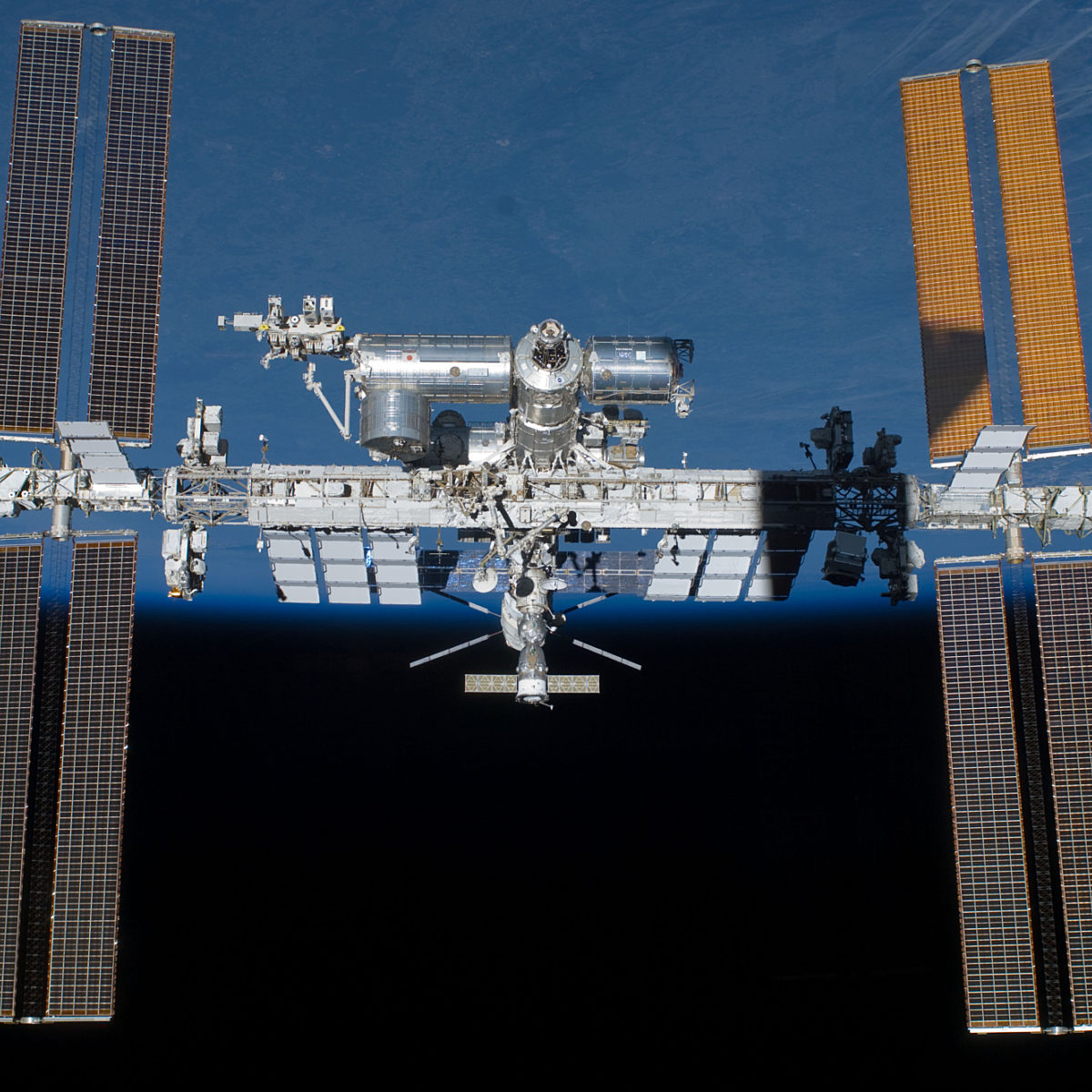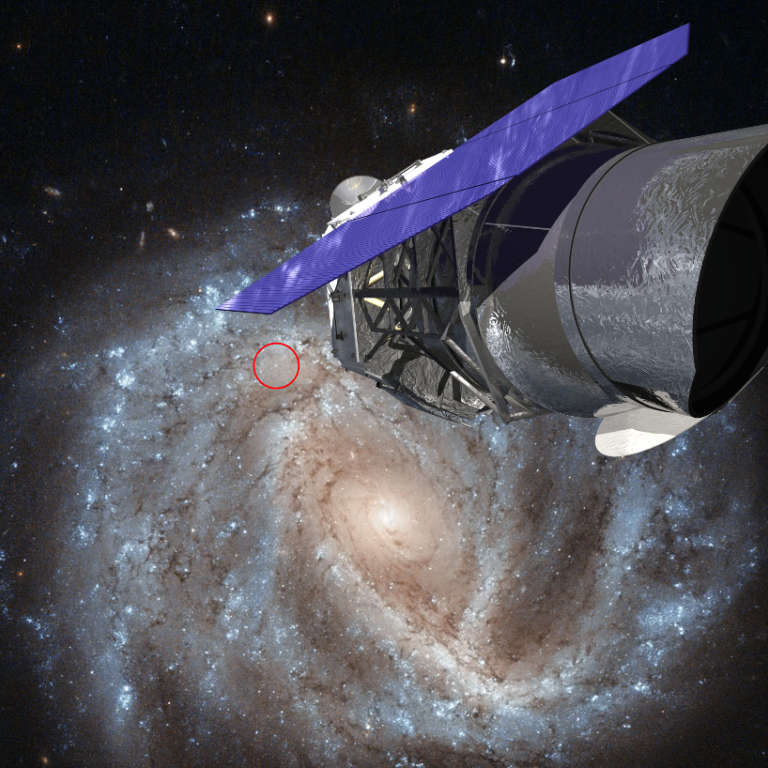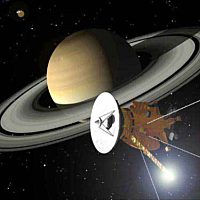Since 2002, Planetary Radio has visited with a scientist, engineer, project manager, advocate, or writer who provides a unique perspective on the quest for knowledge about our Solar System and beyond. The full show archive is available for free.
Search Planetary Radio
Historian John Logsdon discusses his new book, Ronald Reagan and the Space Frontier It explores the legacy of the 40th president’s major space policy decisions. We look at four major topics: early efforts at commercializing space, the survival crisis for planetary exploration, the Space Shuttle, and the decision to build the space station.
China's space program notched an impressive "first" last month when its Chang'e 4 spacecraft landed on the far side of the Moon. The U.S. space program, in contrast, was in the midst of an extended shutdown. Some observers expect China's growing space capability and lunar ambitions to trigger a new space race. Not Dr. Roger Handberg, Professor of Political Science at the University of Central Florida. He discusses how the current geopolitical situation differs from the Cold War standoff between two superpowers, and how we shouldn't expect dollars to flow back to the U.S. space program as a consequence of China's space successes. Cooperation, or even friendly competition, is a much more likely outcome than a new space race.
In a government shutdown seemingly without end, we bring you two stories from individuals directly impacted by the crisis. NASA scientist and union representative Lee Stone discusses the missed paychecks, loss of science, and lasting negative consequences to the public sector scientific workforce.
Canada was the third country in history to launch a satellite into space, but now lags in its space ambitions, capability, and spending. What happened?
The counting continues as we publish this month’s special episode, with a handful of seats in the US Senate and House still up for grabs. But with the Democratic takeover of the House assured, and several longtime space advocates turned out, change is certainly coming.
Happy 60th, NASA. In celebration of the space agency’s birthday, we do the audio equivalent of pulling out NASA’s baby book and explore its origin story.
We talk with planetary scientist and Lunar and Planetary Institute Director Louise Prockter, who co-led creation of a new report evaluating the performance of NASA's planetary science division.
The Senate just held a hearing on NASA's efforts to send humans to...Mars? A week later, the same committee advanced legislation to extend the life of the International Space Station to 2030, six years beyond the current end-date and two years beyond the current hardware safety ratings.
President Trump recently ordered the creation of Space Force—but what does that mean? What are the implications for militarization of space? National security expert Dr. Brian Weeden joins the show to explain the announcement.
President Trump just signed a new space policy directive targeting the regulations surrounding commercial spaceflight. Casey Dreier, Jason Callahan, and Mat Kaplan dive into the implications of the new directive and what it means for the relationship between government and space. They also break down all of the good news in the House's new funding bill for NASA, and highlight NASA Administrator Jim Bridenstine's turnaround on climate change.
After announcing it intends to divest from the International Space Station in 2025, NASA quietly released a new report on its transition plans, laying out a series of principles that will set the future of U.S. astronauts in low-Earth orbit. Can a private entity really take over the space station? Where did this idea come from anyway?
Lori Garver, former Deputy Administrator of NASA, talks with Casey about what the Deputy and Administrator jobs are like day-to-day, how decisions actually get made at the top, and why the current lack of confirmed leadership hurts the space agency.
Society members from 21 states descended on the U.S. capitol for a
As promised, Casey Dreier and Jason Callahan are back with a special review of the just-released FY 2019 President’s Budget Request (PBR) for NASA. It contains good news, bad news and odd news. What is likely to stand? What will Congress ignore, going its own way? NASA’s new lunar ambitions, Mars Sample Return, WFIRST and more hang in the balance. Let the debate begin.
Planetary Society CEO Bill Nye attended the State of the Union address on January 30th, he also spent the day meeting with sixteen different members of Congress to promote science on Capitol Hill. In this special abbreviated show, Casey Dreier and Mat Kaplan welcome their colleague Matt Renninger, who joined Bill on Capitol Hill, to discuss the goals of The Planetary Society and the reasons why it was important for Bill to attend.
It’s the space policy guys’ turn to look back at a year that saw great achievements in space. Were they matched by events in Washington DC?
Elon Musk. Jeff Bezos. Richard Branson. These are the names we tend to associate with the current era of private space exploration. But what about John Quincy Adams, James Lick, or Charles Yerkes? Space economist and historian Dr. Alex MacDonald joins us to discuss his book,
The likely next Administrator of NASA, Jim Bridenstine, appeared before a somewhat skeptical Senate committee to defend his nomination. Casey and Jason recap the hearing and assess Congressman Bridenstine’s chance of moving forward.
Fifteen years before Sputnik, on a bright 1942 afternoon in northern Germany, a thundering machine of metal and fire pierced the sky, ultimately touching the edge of space for the first time in history. It opened a new era of opportunity and terror with rocket technology. Dr. Michael Neufeld joins us discuss the significance of this test and how it happened.
The multi-billion dollar, multi-decade Cassini mission is about to end. A new report tries to answer an important question: are flagship science missions like Cassini worth the effort and expense? And how can NASA maximize the value of these endeavours? Dr. Ralph McNutt, co-chair of the National Academies study, reviews the report’s recommendations.


 Explore Worlds
Explore Worlds Find Life
Find Life Defend Earth
Defend Earth
















